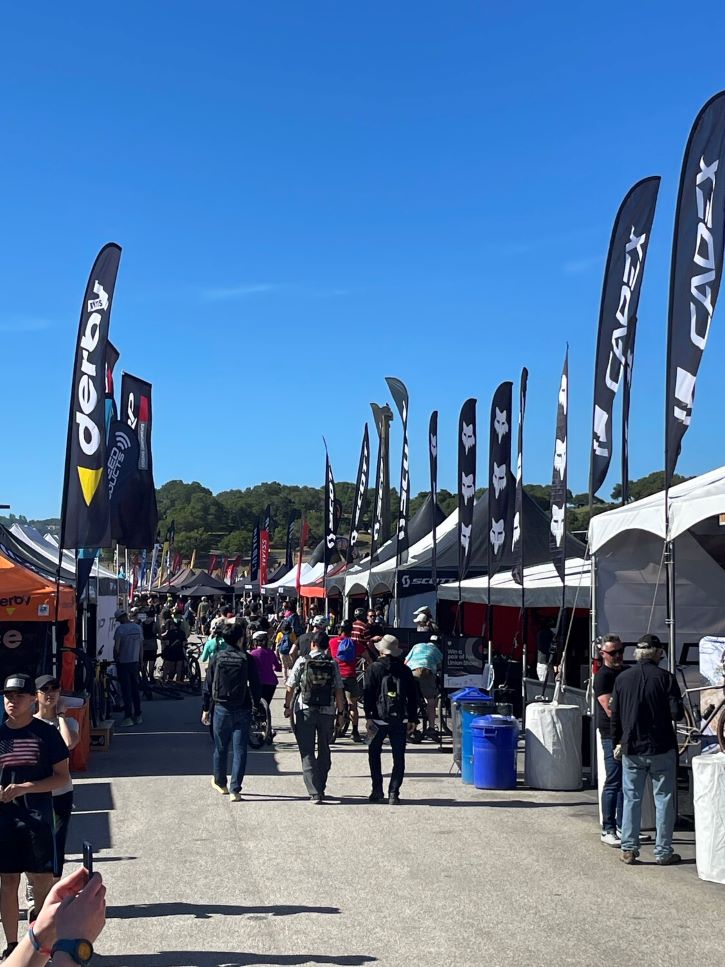Peter Abraham: What I learned at the Sea Otter Classic
In the guest feature, Content Marketer, and Branding expert, Peter Abraham, shares his Sea Otter Classic experience.
Thanks Simon. Here we’ll unpack my week spent the working at the Sea Otter Classic. As a Marketing and Brand professional, we’ll explore what I see brands doing right, and wrong (and explore what’s going on with gravel racing).
I spent much of last week up at the venerable Sea Otter Classic bike event working with 4iiii Power Meters and other clients. Held at the Laguna Seca race track in Monterey, CA, it’s one of the oldest and biggest bike festivals in the world, with dozens of mountain bike, gravel and road races happening simultaneously. And since the closure of the Interbike trade show in Las Vegas a few years ago, Sea Otter has become a huge industry showcase. There were over 700 brands in attendance to go along with tens of thousands of participants and cyclists. The event saw record breaking crowds, an encouraging sign for the bike industry. Given the mix of different disciplines and brands, Sea Otter has always had a “gathering of the tribes” feel, which is really fun.
Here are my takeaways from the event:
The Community
- Every single person I met was overjoyed to be immersed in a live event. While Sea Otter, and many other events, were technically back last year, it now feels like live gatherings are “really back.” You could feel the energy and excitement that only comes from being around other humans in real life. There is no virtual equivalent. And I saw just about every single person I’ve ever met in the bike world in the span of four days. I loved it.
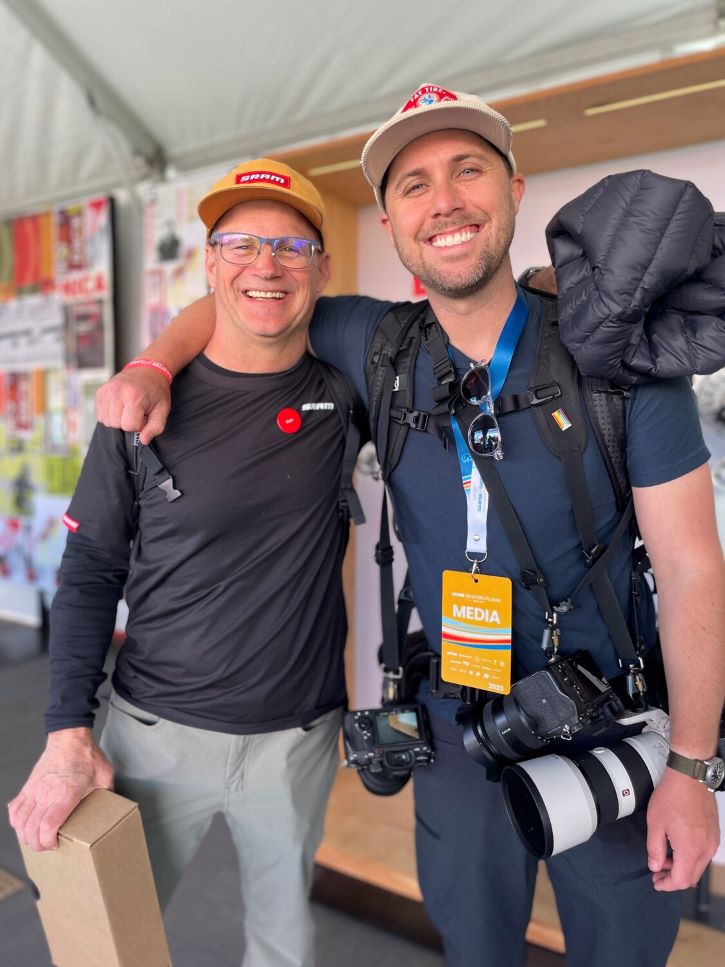
- The brands that did not show up were conspicuous in their absence. If you want to be a functioning member of any community (a church, an AA group, your family) you need to show up consistently even if you don’t always benefit. You are there to support everyone else, and vice versa. This also goes for businesses in the bicycle ecosystem. It felt like some brands were calculating their participation on ROI: “Given that it will cost us $50K to show up at Sea Otter, will we make that money back in sales?” Or, “Hey, we’ve already got that community on lock down, we don’t need to be there.” Those are the wrong ways to look at an event like this. Brands need to understand the value of simply being present and bringing value to the community. The ROI comes over time when customers, partners, retailers and athletes see that you consistently show up to important events like this and support others. There should be less selling and more uplifting the community. I did attend some good events put on by Canyon (disclosure: they’ve been a client of mine), but there could be much more leadership put towards bringing all of us together.
The Brands
- As I’ve written about before, there’s a lot of sameness in the bike industry: the bikes (whether MTB, road or gravel) all look almost identical, and mostly all use either Shimano or SRAM components. Given that, the way for businesses to differentiate themselves is with distinct brand identities. And I didn’t see much of that at Sea Otter. Just about every bike brand displays their bikes in the same ways and their booths looked similar. It all felt very safe and down the middle: tech focused, clean displays and coffee offered in most booths. The fastest growing segment of bikes is the eBike category; there are new brands popping up all the time, and the tech is changing rapidly. But the branding and event marketing in that area felt very conventional as well. If Cake was here with their minimal Scandinavian design aesthetic, they would have made a splash.

- MTB could use some young and fun energy. In the late ’90s I attended the now-defunct Action Sports Retailer trade show in San Diego. This was where every skate, snowboard and surf brand met with retailers from around the country. I remember Volcom showing up there with every staff member, including CEO Richard Woolcott, dressed in a clown suit. It was unique, disruptive and fun. The brand looked and felt completely different from every other business at the show. Ten years ago, I would attend the Outdoor Retailer show in Salt Lake City. At that time, Patagonia was the beating heart of the event. That booth, with their unique and authentic brand story, was where all the cool kids gathered. And that included many of the North Face sponsored athletes. I didn’t see anything like this at Sea Otter. I never once heard, “Peter you have to go check out the _____ booth.” Given the number of young MTB riders (many from NICA high school MTB programs) and gravity-focused brands, I was surprised a the lack of fun, unique & youthful energy. This feels like a wide open brand opportunity, particularly in the booming MTB category. I will admit that the dual slalom race at Sea Otter Classic was one of the most fun bike events I’ve been to: a huge, rowdy crowd, epic wipeouts, and super competitive racing.
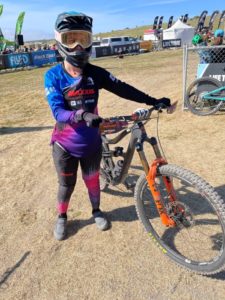
The Bike Racing
- Gravel & MTB racing is getting more competitive by the minute. I spent most of Saturday at Sea Otter Classic with photographers Danny Awang and Grace Williams shooting the Fuego XL MTB race. That was a 110K race that served as the first event in the Life Time Grand Prix series. What struck me was how high the level is in gravel and MTB races now. The top of the field was stacked with Olympians, foreign riders and those who are 100% fully committed to being professional athletes. The idea of gravel racing as a “retirement plan” for pro road cyclists looks increasingly unrealistic, at least if they want to be on the podium at large and competitive events. The competition is getting visibly better and faster each and every year. In addition, I’m not seeing many content creators & storytellers up front in races. The fastest athletes (in most sports, not just cycling) don’t have time for a YouTube channel or curated Instagram stories; they’re too busy training all day, every day. I believe we’ll look back at the 2016–2022 era in gravel as a moment in time that helped define the spirit of the sport. But we’re not going back there.
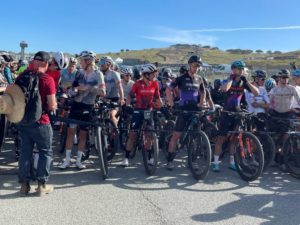
- The lack of live streaming will limit the growth of professional gravel racing. While some races (Unbound) do have some streaming, gravel and long MTB events often take place where there is no cell service. So producing a professional video feed is an expensive commitment that takes months of preparation. When I managed the live tv broadcast at the Los Angeles Marathon, we spent over $300,000 for a single 2–1/2 hour show. I realize that most cycling events can’t write a check of that size. At the same time, it’s unrealistic to expect non-endemic sponsors to jump into bike racing without a competent video broadcast. Athletes will also be held back in doing bigger sponsorship deals because “they’re not on tv.” Gravel races could look to the high quality production at Cape Epic (recommended to me by Jeremiah Bishop) as an example of how to do this the right way.
- The pandemic bike boom is filtering through to competitive cycling. I was invited to attend an open house for the new Cynisca women’s pro road team. The squad, named after the first women’s Olympic champion (chariot racing!) in 396 BC, is committed to developing “young athletes as they progress through the elite ranks of pro cycling.” First of all, I loved meeting their riders and staff. It’s a very professional organization, with good salaries paid to riders, a service course in France and a full calendar of European races. But importantly, many of the athletes are brand new to bikes and have come from running, triathlon and cross country skiing. In addition to the Cynisca athletes, there are a number of former rowers excelling on bikes for teams like Team Twenty 24, Fount Cycling, Red Truck Racing and CS Velo. This is an interesting trend, and I hope more talented athletes find cycling coming in the side door.
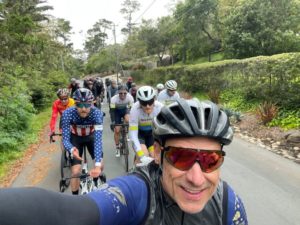
Ownership note
Sea Otter Classic, the US show, was acquired by Life Time in 2019, with the spin off events in Europe and Australia held under separate ownership
